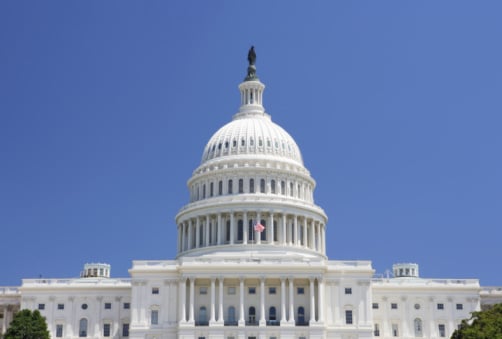
Source: Thinkstock
The CBO notes that 2014 is the fifth consecutive year that the budget deficit has declined as a share of GDP since peaking at 9.8% in 2009. As a percentage the 2014 deficit is equal to 2.8% of U.S. GDP. The average deficit from 1974 to 2013 is 3.1% of GDP.
If existing laws remain unchanged, however, shrinking deficits will reverse in 2019. Deficits are projected to rise from a low of $469 billion in 2015 to about $1 trillion in 2022 before falling slightly through 2024. The primary reasons for the increase are an aging U.S. population, rising healthcare costs, expanded federal subsidies for health insurance, and larger payments on the national debt.
Federal debt held by the public grows to 78% of GDP by 2024, up from 72% at the end of 2013. In 2007 the debt totaled just 35% of GDP. Federal spending on the major health programs will rise from 9.5% of GDP in 2013 to 11.5% in 2024, surpassing federal outlays on Social Security.
Today’s projections are lower than those made in February largely due to a lower estimate for discretionary spending and lower projections of the cost of health insurance subsidies provided by Obamacare and Medicare.
Sponsored: Want to Retire Early? Here’s a Great First Step
Want retirement to come a few years earlier than you’d planned? Or are you ready to retire now, but want an extra set of eyes on your finances?
Now you can speak with up to 3 financial experts in your area for FREE. By simply clicking here you can begin to match with financial professionals who can help you build your plan to retire early. And the best part? The first conversation with them is free.
Click here to match with up to 3 financial pros who would be excited to help you make financial decisions.
Thank you for reading! Have some feedback for us?
Contact the 24/7 Wall St. editorial team.



